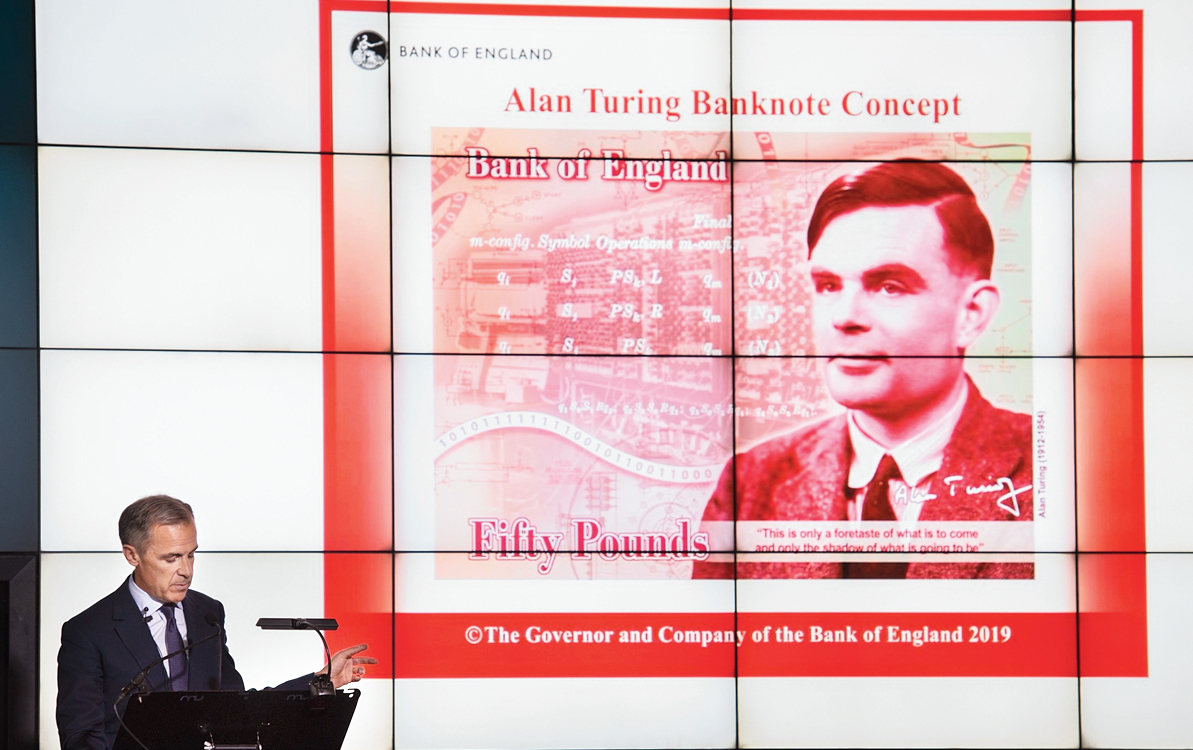Although two Indian scientists, Srinivasa Ramanujan and Jagadish Chandra Bose, who both worked in Cambridge, were among the many candidates for Britain’s new £50 note, the honour has gone to Alan Turing, the Bank of England has confirmed.
The choice seems to be a gesture to the LGBT movement and also a way of saying sorry to the mathematical genius who was hounded to his death because of his homosexuality.
During World War II, Turing worked for the Government Code and Cypher School (GC&CS) at Bletchley Park, Britain’s codebreaking centre in Buckinghamshire.
For a time he led “Hut 8”, the section responsible for German naval cryptanalysis. He devised a number of techniques for speeding the breaking of German ciphers, including Enigma. His efforts are believed to have shortened the war.
Turing was prosecuted in 1952 for homosexual acts, when “gross indecency” was still criminal in the UK. He accepted chemical castration treatment as an alternative to prison.
Turing died in 1954, 16 days before his 42nd birthday, from cyanide poisoning. His death was a dark moment in British history and science.
The new polymer £50 note, which celebrates “British achievement in science”, is expected to enter circulation by the end of 2021.
It will feature a quote from Turing, given in an interview to The Times on June 11 1949: “This is only a foretaste of what is to come, and only the shadow of what is going to be.”
The choice of Turing was announced on Monday at the Science and Industry Museum in Manchester by Mark Carney, the governor of the Bank of England.
“Alan Turing was an outstanding mathematician whose work has had an enormous impact on how we live today,” said Carney. “As the father of computer science and artificial intelligence, as well as war hero, Alan Turing’s contributions were far ranging and path breaking.
“Turing is a giant on whose shoulders so many now stand.”
According to the Bank, “the shortlisted options demonstrate the breadth of scientific achievement in the UK, from astronomy to physics, chemistry to palaeontology and mathematics to biochemistry.
The shortlisted characters, or pairs of characters, considered were Mary Anning, Paul Dirac, Rosalind Franklin, William Herschel and Caroline Herschel, Dorothy Hodgkin, Ada Lovelace and Charles Babbage, Stephen Hawking, James Clerk Maxwell, Srinivasa Ramanujan, Ernest Rutherford, Frederick Sanger and Alan Turing.”
The Bank added: “Turing was homosexual and was posthumously pardoned by the Queen having been convicted of gross indecency for his relationship with a man. His legacy continues to have an impact on both science and society today.”
In 2009, following an Internet campaign, British Prime Minister Gordon Brown made an official public apology on behalf of the British government for “the appalling way he was treated”. Queen Elizabeth II granted him a posthumous pardon in 2013.
An attempt to redress the balance was made in the 2014 film, The Imitation Game, in which Benedict Cumberbatch was cast as Turing.











